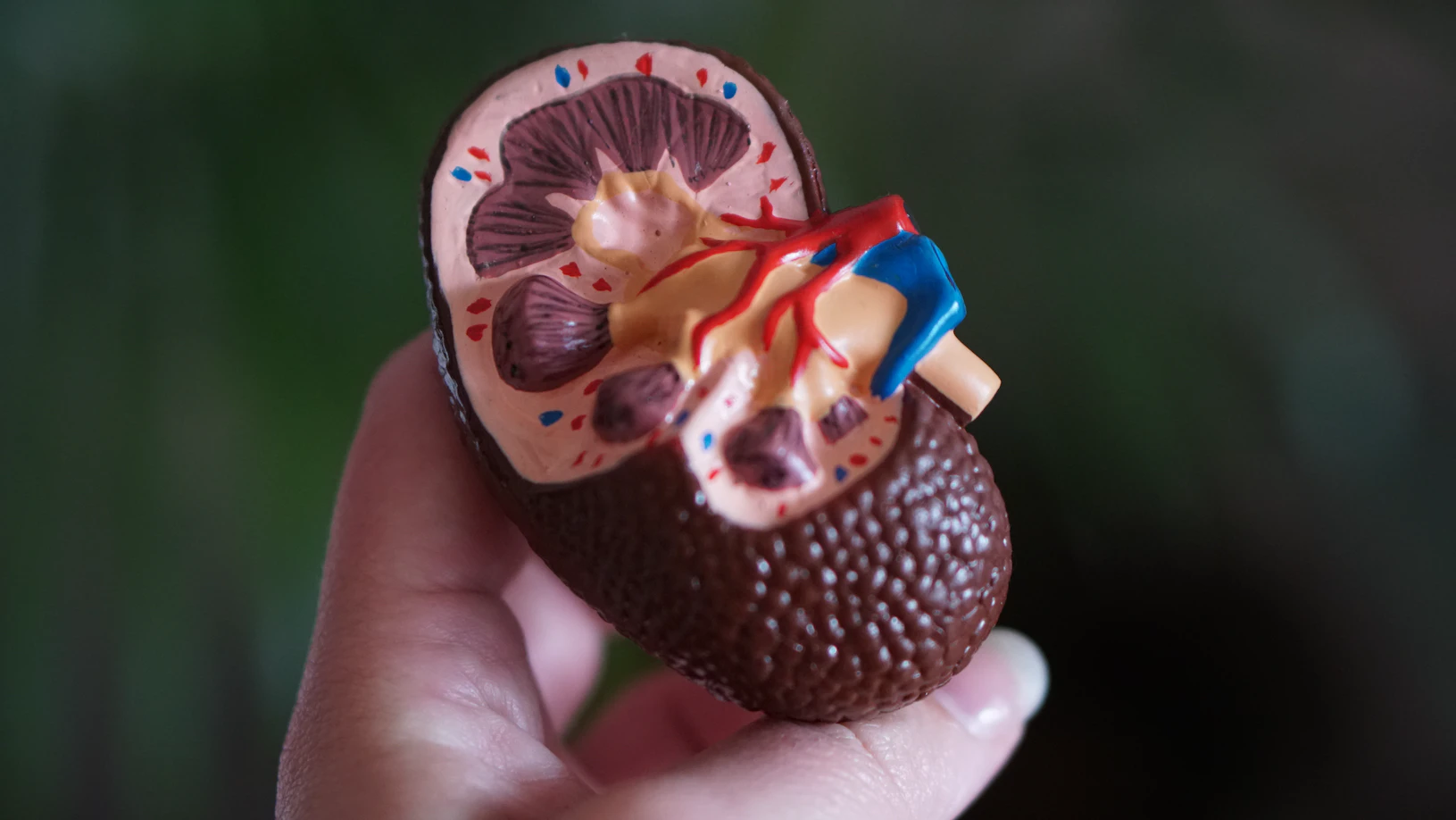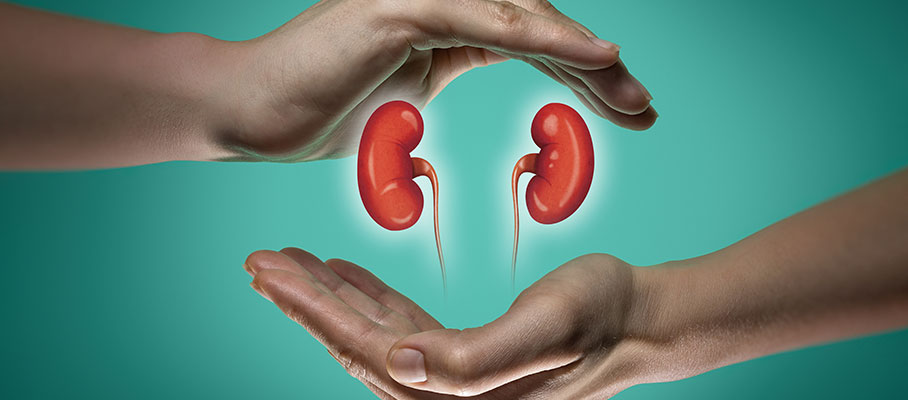Kidney health
What is Kidney Disease? All You Need To Know
Introduction Chronic kidney diseases affect around 10% of the Indian population. Statistics show that close to 1 lakh cases of renal failure are reported every year. Kidney disease results from kidney damage, making them unable to carry out their functions. This damage can be caused due to high blood pressure, diabetes or other long-term health conditions. Kidney disease can also lead to other health problems, such as nerve damage, weak bones and malnutrition. What is kidney disease? Kidneys are the organs responsible for regulating your body’s pH levels, salt, potassium, and various functions. They are two bean-shaped organs that are usually the size of your fists. Your kidneys carry out three main functions: filtering excess water and waste out of the blood and creating urine. Kidney disease results from kidney damage, making it difficult for them to filter the blood as they should. Here you will understand more about the function of the kidneys and the causes, symptoms, types and treatment of kidney disease. The longer you wait before treating this condition, the more chances it may result in total renal failure. In this case, you would need to undergo dialysis, a form of treatment that helps filter and purify your blood with the help of a machine. As there is no known cure for kidney failure, the individual will have to undergo dialysis for the rest of their life. Types and causes of kidney disease Here is a comprehensive kidney disease list that describes the different types and causes of kidney diseases so that you know the risk and the mode of action required for such conditions. Chronic kidney disease This is one of the most common types of kidney disease. It is a long-term condition that does not improve over time and can result from high blood pressure. This happens because of the pressure applied on the glomeruli (a network of tiny blood vessels in the kidneys that helps purify the blood). Over a period, the increased pressure on these can cause damage to these vessels, which in turn limits kidney function. Ultimately the kidney function declines to the point where the kidneys cannot carry out their function correctly, causing the individual to need dialysis and, in more severe cases, a kidney transplant. Diabetes is another major cause of chronic kidney disease. In this case, the increased sugar level in the blood causes the blood vessels in the kidneys to get damaged over time. The kidneys cannot clean the blood properly, so the body can get overloaded with various toxins. Kidney stones Another common problem is the presence of kidney stones. This disease occurs because substances like minerals crystallise in the kidneys and form solid masses, also known as stones. When urinating, these stones are often dispelled from the body, but the process can be significantly painful. Polycystic kidney disease This genetic disorder often results in the growth of multiple tiny sacs of fluid known as cysts in the kidneys. These cysts can interfere with the kidneys' optimum functioning, resulting in kidney failure. Note that individual kidney cysts are relatively common among individuals and can be harmless. It is only polycystic kidney disease that can be life-threatening. Glomerulonephritis Glomerulonephritis is a kidney disease in which the glomeruli get inflamed. This is usually caused due to drugs, infections or congenital abnormalities. It usually gets better on its own. Urinary tract infections Urinary tract infections are caused because of bacterial infections in the urinary system. This kind of infection is usually seen in the urethra or bladder. They are easy to treat but, if left untreated, can also cause kidney disease. symptoms of Kidney disease Kidney diseases may go unnoticed as their symptoms are less noticeable than other diseases. However, if left without treatment, it can have severe consequences. Here are a few early kidney disease symptoms. Fatigue Trouble sleeping Muscle cramps Dry and scaly skin Swelling in ankles and feet Poor appetite Morning puffiness around the eyes Frequent urination Difficulty concentrating Severe kidney disease symptoms may include: Nausea Vomiting Changes in the output of urine A sudden rise in your potassium levels Pericardium inflammation Decrease in sex drive Fluid retention Anaemia Treatment for kidney disease Treatment for any kidney disease involves trying to control the underlying cause of the disease. The treatment options include: Medications Your doctor might prescribe several medications in the case of kidney disease based on the cause, these include: Angiotensin-converting enzyme inhibitors or angiotensin receptor blockers help lower blood pressure A phosphate if your kidneys are having trouble eliminating phosphate A diuretic to eliminate the excess fluid build-up Medicines that help reduce cholesterol levels Vitamin D and calcitriol for bone preservation Erythropoietin helps build red blood cells in patients with anaemia Changes in diet and lifestyle Those with reduced kidney function need to preserve the remaining function so that it can last for longer. Here are a few diet and lifestyle changes you will have to make in your diet and lifestyle Make regular doctor visits Manage your blood sugar levels in case of diabetes Avoid the consumption of painkillers as other non-essential medicines Choose a kidney-friendly diet with limited proteins, sodium and potassium Be more active Don't smoke Try and remain at a weight that is healthy for you Dialysis As there is no known cure for kidney disease your healthcare provider will suggest dialysis when you are in the end stages of kidney disease. There are two main types of dialysis: Hemodialysis: In this case, the blood is circulated through a device that helps get rid of excess waste products before the blood is sent back to the body. Peritoneal dialysis: Here a dialysis solution is placed directly into the abdomen with the help of a catheter. This solution absorbs the waste and can be removed using the same catheter before adding a fresh solution. Book Kidney Function Test Conclusion The kidneys carry out the essential job of waste and excess fluid from the body. When your kidneys stop functioning optimally, they can cause several health issues. Regular health checkups and blood tests help to keep track of your health. You should go the extra mile to get blood and urine tests done if you suspect you may have kidney disease. Metropolis Labs helps their customers with at-home sample collection so that you can keep up with your health from the comfort of your home. Metropolis Healthcare assures accurate results within 48 hours of sample collection. Check out the entire list of diagnostic tests provided to find the ones you need.
6 Tips: How To Keep Your Kidneys Healthy By Maintaining a Healthy Lifestyle & Diet
Maintaining the good health of your vital organs is important for healthy living. When we talk about vital organs, kidneys often take a backseat. These are a pair of bean-shaped organs, each about 4 or 5 inches long, located at the base of the rib cage. These multitasking organs are responsible for critical functions like the removal of wastes and toxins from the body, production of certain hormones, induce formation of red blood cells, and regulation of extracellular fluid volume, blood pressure, acid-base balance, and electrolyte concentrations. While your kidneys work hard day in and day out to keep you going, are you sure you are doing the right things to keep your kidneys healthy? Here are 6 simple rules you should definitely follow to keep your kidneys healthy: 1. Maintaining a healthy body weight Staying fit is really important for your kidneys because obesity can lead to high blood pressure which is bad for your kidney health. Regular physical activity can prevent weight gain, high blood pressure, and the risk of chronic kidney disease (CKD). Reduced physical activity and performance have been observed in CKD patients as compared to the general population. Several studies suggest that exercise involvement can improve several health parameters in CKD patients. Aerobic activities like walking, running, skiing, jogging, cycling, dancing, and swimming are great for your health. Try to work up slowly for at least 150 minutes every week. But, don’t overexert yourself, be mindful of how much exercise you do. If you are not keeping yourself active now, discuss with a fitness expert before beginning any new workout program. 2. Keep sipping water often Water helps the kidneys remove toxins from the blood and make your body free of waste material. It also helps in preventing kidney stones and urinary tract infections. It is a popular belief that everyone should drink eight glasses i.e., approximately 2 liters of water per day, but since everyone’s body is different, daily water requirements also differ from person to person. How much water you require depends on factors like age, climate, exercise intensity, health conditions, etc. Staying hydrated is good for your kidneys but don’t overdo it as no studies have proven that over-hydration can enhance kidney function. People who have previously had kidney stones are advised to drink a bit more water to help prevent stone deposits in the future. If you have kidney or heart or liver disease, consult your healthcare provider on the adequate water intake for your condition. 3. Do not overdo OTC pills Prolonged use of over-the-counter (OTC) drugs such as non-steroidal anti-inflammatory (NSAIDS)/ pain-killer (e.g. drugs like ibuprofen) may harm your kidneys. People with healthy kidneys who take the medicines occasionally are likely in the clear. However, if you have kidney disease or decreased kidney function, taking medicines without consulting a doctor should be strictly avoided. 4. Assess your risk and get tested If you or your family have a history of kidney failure, diabetes, high blood pressure, or obesity, get your kidney function checked. Also, remember to keep your blood glucose numbers and blood pressure levels close to the healthy goals. Diabetes and high blood pressure both are leading causes of kidney problems. If you don’t have any symptoms of high blood pressure or diabetes or you are not aware of your family health history, still you could be at risk. So, the best way to know your kidney’s health is to get your health tests done regularly. This helps to identify any health condition at an early stage, and take action to slow or prevent future damage. 5. Eat healthy diet Healthy food choices can help to maintain ideal body weight, prevent diabetes, hypertension, heart disease, and other conditions associated with CKD. Eat healthy foods like fresh fruits and vegetables, whole grains, and low-fat or fat-free dairy products. Cut down on salt and added sugars. Aim for a low-sodium diet, no more than 2,500 milligrams of sodium a day. Limit your added sugar intake to less than 10 percent of your total daily calories. Check food labels to see how much salt and sugar is in a serving. Don't eat too much fatty food, restaurant food, processed meats, and other kidney-damaging foods. 6. Quit smoking and limit alcohol intake Try to quit smoking completely and limit the amount of alcohol you consume. Smoking and drinking alcohol both raise your blood pressure. High blood pressure is one of the most common causes of chronic kidney diseases. Smoking can damage blood vessels, which decreases blood flow to the organs, including kidneys. When the kidneys have inadequate blood flow, they can’t function optimally. Smoking also increases the risk of developing several cancers including kidney cancer. When you quit smoking, your risk will drop. Quitting smoking can be extremely difficult, but you can seek the help of an expert to start your smoke free journey now. If you drink alcohol, it is advised to limit your alcohol intake to one drink per day if you are a woman and two drinks per day if you are a man. One drink is roughly 14 grams of pure alcohol found in 12 ounces of a regular beer or 5 ounces of table wine or 1.5 ounces of hard liquor. Get, set, go! Now you know the simplest rules that can help keep your kidneys healthy. Remember, they are vital to your overall health and well-being. So, start taking good care of them.
 Home Visit
Home Visit Upload
Upload
















 WhatsApp
WhatsApp